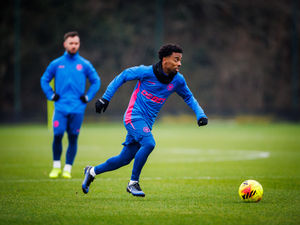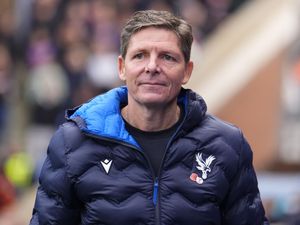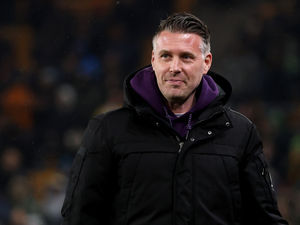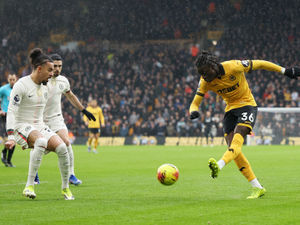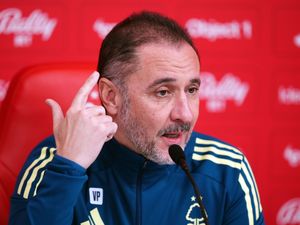Johnny Phillips: Wolves will not progress without a change of style on the pitch
A week is a long time in football, particularly after a 3-0 home defeat.
One of the characteristics of the abject performance against Brighton was the reaction of the crowd.
Never in this Premier League spell have there been so many audible boos and such a mass exodus. The wolf heads on the seats in the North Bank were clearly visible long before the full-time whistle.
The supporters, as always, have every right to air their grievances. This was a result which followed on from a pair of drab 1-0 defeats. There are times when the players can take a lead from those in the stands but usually it is the footballers who need to set the tone. That did not happen last Saturday.
Devoting too much analysis to one result is not beneficial to anyone and Bruno Lage admitted that the supporters’ reaction was justified. It is just unfortunate that this run of form has arrived precisely when optimism was peaking and possibilities were opening up. Now we are in the dip of a campaign that has run an unpredictable course.
Midway through the season, in December, this column suggested Lage’s Wolves lacked a distinct identity and direction from what had gone before.
That view prompted some strong counter arguments.
The higher defensive line under Lage has generally benefited the team. Individual improvements of the younger players accompanied by a step up from seniors like Conor Coady and Romain Saiss were offered as further examples of the head coach’s positive impact. The measured dismantling of Manchester United and Tottenham Hotspur that followed in the New Year were signs of a team coached to a plan.
Five months further on, though, that initial opinion has not changed.
The reality is that Lage’s Wolves have never been anything more than a work in progress, with the head coach still a long way short of putting a substantial imprint on the team.
Wolves are still striving for consistency. They have lost more games than relegation-threatened Burnley but have won enough to amass a decent 49 points from the season so far, with four games still to play.
Maybe, when plaudits were queueing up to pile on the praise, the team was not quite as good as some suggested. For all the joy of the historic win at Old Trafford, it came against the worst United side to take the field in more than 30 years. The most impressive victory, in terms of execution of tactics, came against Antonio Conte’s Spurs in the capital in February.
That 2-0 win was followed by success at home to Leicester in a tight game which could have gone either way.
That was the moment when Champions League qualification became a tantalising, if still highly unlikely, prospect.
Successive defeats to three London clubs – Arsenal, West Ham and Crystal Palace – soon brought some realism back to the table.
The three latest losses have been more dispiriting because Wolves have not laid a glove on their opponents. But just as the praise was over the top in the good times this season, so Wolves are nowhere near as bad as some are now suggesting.
Recent struggles can in part be put down to the sparse nature of the injury-hit squad, which similarly affected Lage’s predecessor last season.
The form of Joao Moutinho tailed off without Ruben Neves alongside him as Wolves failed to impose themselves against Newcastle and Burnley, before the entire team had an off day against Brighton.
Rumours of a training ground incident were addressed at yesterday’s press conference.
Here is something that might be worth bearing in mind, though: what qualifies as a bust-up in the eyes of onlookers is not measured in the same way by those inside the dressing room. Heated exchanges are not infrequent at professional football clubs.
With four games to go – three against the top three – there is a fear that the season will end badly.
More than any tactical change at this stage, Wolves need to get back to the strengths they showed when winning matches.
What can be really insightful is the view of opposition players. At various stages this season there has been the opportunity to ask players on the other side what they make of Wolves: They’re strong physically, they’re right on top of you, you don’t get time to think, they come at you.
These are some answers I’ve been hearing when Wolves are playing well.
The team has rarely been a soft touch and that’s where Lage and his staff deserve immense credit. Yet, in recent weeks those characteristics have disappeared.
When the players are not operating at full throttle, the system can also count against Wolves.
The price to pay for being so wedded to three at the back becomes apparent, as it did when Crystal Palace gave a masterclass in exploiting space behind the wing-backs and in central midfield when they romped to victory at Molineux in March.
In-game changes have been slow to materialise when Wolves lose their grip on matches. Perhaps the head coach has not yet got the resources needed to show greater flexibility or move further away from the tried and trusted system of recent seasons.
Which brings us to the next step. Assuming he remains in the job, how does Lage continue to take Wolves forward after a strong debut season? This will be a summer of change with significant transfer activity, perhaps more so than in any other window during this Premier League period.
Those who say chequebook management is the answer miss the point.
Lage was not brought here to spend his way to success.
This is not Sir Jack Hayward’s Wolves of the 1990s and early 2000s, when several managers were given riches to build the team they desired. It is naive to think Lage should have the remit to do this. Very few managers do, in the modern era.
He is here to work under a more sustainable and measured approach, in keeping with head coaches at many similar sized Premier League clubs, with an emphasis on developing young talent and exploiting Wolves’ edge in global recruitment so that the club can thrive beyond his tenure.
Wolves have already shown under Nuno Espirito Santo that they can reach seventh place.
The resources needed to climb higher are vast. If Neves and Moutinho have played their last season at Molineux, if Raul Jimenez can no longer be the talisman up front and if Wolves are to move away from three at the back, it is asking a lot of any head coach to find a way of breaking through that ceiling. The challenge for the recruitment and coaching staff is to start rebuilding the squad without their work impacting negatively on the pitch.
The spine of the team will change, with more than one central defender on his way in and a strengthening of the midfield and forward positions also set to happen.
What Lage has done ahead of anything else this season is show his adaptability. It did not take him long to work out where the players could operate comfortably within the framework of the Premier League fixture list.
He made Wolves competitive and resilient for much of the season and has masterminded a genuine challenge for European football that still lingers on.
And who knows what the next four games will bring? This team often enjoys the challenge of the toughest opponents.
Lage’s team occupy a loftier position in the Premier League than most forecast back in August, but the frustration among supporters that Wolves may have missed the boat when the door was left ajar higher up is understandable.
The recent struggles against teams lower down the division have clearly highlighted what needs to happen next.
If Wolves are to be successful going forward under this head coach, there must be a genuine change of approach on the pitch.

